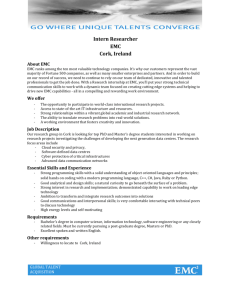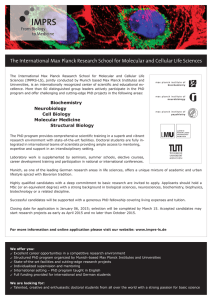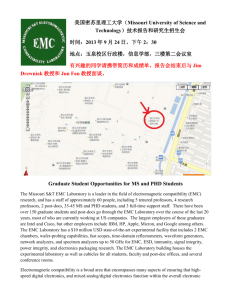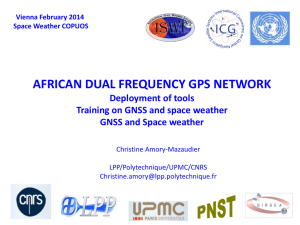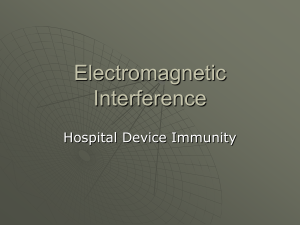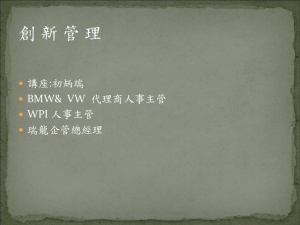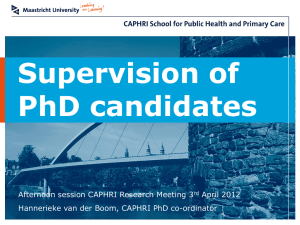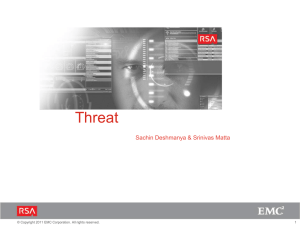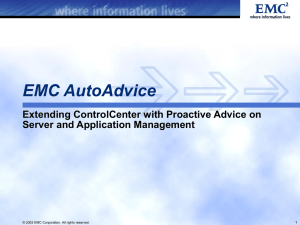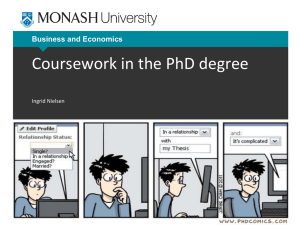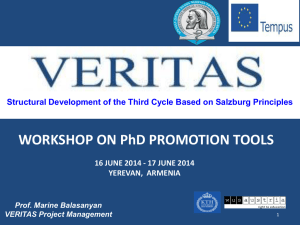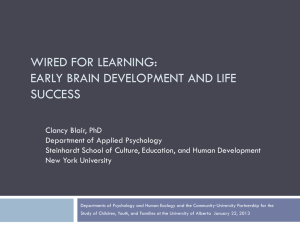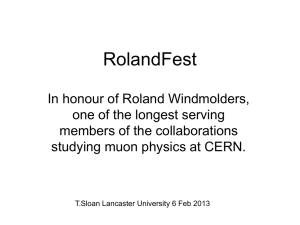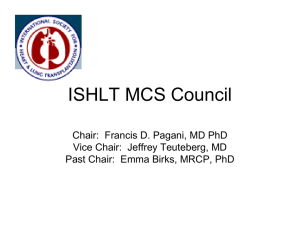Ideas for PhD topics - School of Electrical & Electronic Engineering
advertisement
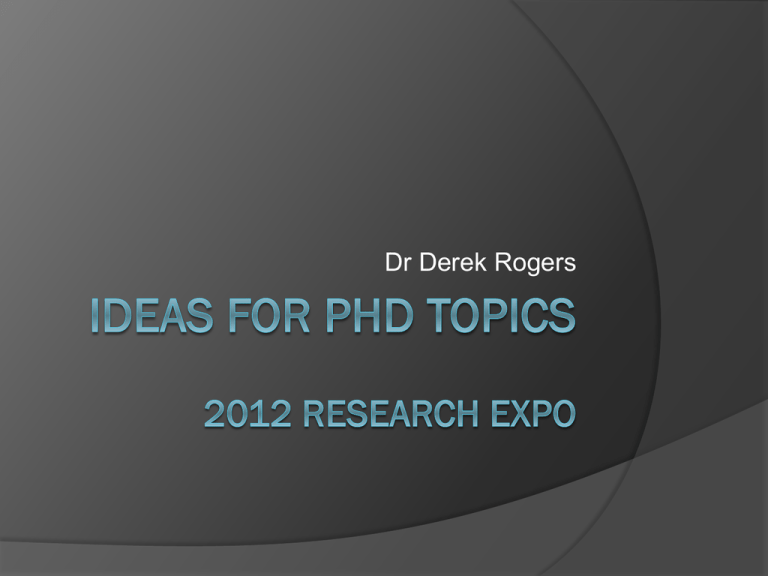
Dr Derek Rogers PhD Ideas Improved ship-board man overboard search and track systems The EMI impact of personal electronic devices on aeroplane systems A collection of other areas of interest Ideas for PhD Topics Background One of the sensors on many naval vessels is an Infra-Red Search and Track (IRST) system IRST systems are often used for missile detection but can also be used for man overboard detection and tracking. When placed on a ship a sensor has to contend with roll/pitch/yaw of the ship, various sea states and often a very small target (the person overboard) to try and detect and track. Problem The intent of the PhD would be to look at ways of improving IRST systems in the context of man overboard detection and tracking ○ Taking into account the mounting on a ship and the maritime environment ‘Improving’ means increased probability of detection and tracking under adverse conditions: ○ Sea state, atmospheric conditions, solar conditions Research Direction The research can explore a number of directions but should explore and consider the performance of detection and tracking algorithms under different situations and look to improve them: ○ Perhaps by taking into account input from other sensors to provide an increased probability of detection and tracking stability ○ Perhaps by taking into account image recognition Skills and Behaviours Anyone interested should first have an interest in solving the problem, then a strength in mathematical modelling and simulation with a very practical focus. The research may involve aspects of radar theory, electro-optics and control theory. The research will require understanding maritime systems and the maritime environment. Ideas for PhD Topics Background Most people are familiar with the phrase “Please turn off all electronic equipment because it may interfere with aircraft navigation systems” Firstly, that is the safest thing to do But there is increasing prevalence of personal communications devices ○ Most people turn them off, ○ Some people forget or don’t know how; and ○ Some people wilfully keep them on. Background One of the other reasons for turning phones off related to the effect on networks of a high altitude (high power) mobile. Modern devices are much lower power, higher frequencies, use more modern modulation techniques. There has been some research into EMI/EMC in aeroplanes but not much Problem The intent of the PhD would be ○ To model to a reasonable fidelity EMC from personal devices in aeroplanes under a variety of scenarios ○ Identify the effects of EMC on different aeroplane systems ○ Propose and analyse ways of allowing the two systems to safely co-exist Research Direction The research can explore a number of directions but should explore: ○ Different ways to model the problem and the strengths and limitations of the different models ○ Consider the fidelity of the devices modelled, the susceptibility of aircraft systems ○ People and other insulators / reflectors Involves understanding EMI/EMC, communications systems, mathematical modelling Skills and Behaviours Anyone interested should first have an interest in solving the problem, then a strength in mathematical modelling and simulation with a very practical focus. The research may involve aspects of EMI/EMC, communications systems, and physiology. The research will require understanding aerospace and communications systems. Ideas for PhD Topics Other areas The following ideas require further development into research topics ○ Flexible Solar Generation and Storage Systems ○ Soft Robots Flexible Solar Generation and Storage Systems New technologies allow the creation of ‘flexible’ batteries; [Soon to be published in ‘Nature’] Similarly another new technology is a paint that has solar generation properties. The research would investigate and analyse these technologies Why does it matter? Imagine the ability to ‘paint’ your car or your roof to make it into a solar generation system and imagine a battery that could be moulded to the roof storing the energy for night time use. Soft Robots Robots are hard metallic things, right? Not for long, new robotic systems are to able to adapt their shapes to climb under or over things, the use air to inflate, deflate and change shape. This leads to a whole series of research topics on the integration of different sensors and control of such systems. Why does it matter? Soft robots will find more acceptance in the consumer (home) market. About Dr Derek Rogers Adjunct of the School of Electrical and Electronic Engineering Previously co-supervised one student in the area of Image Watermarking – they successfully completed their PhD Also an Adjunct Associate Professor at the University of South Australia Primary supervisor for one student in the area of Software Acquisition – they successfully completed their PhD in 2012. Biography Currently the Deputy Systems Engineering Manager – Amphibious Assault Ships (LHD) with Saab Systems Prior to this worked with BAE Systems for 5 years, Motorola for 5 years, CTIN for 3 years Has over 30 publications on a wide range of engineering topics Sits on the Federal Government’s Advisory Council on Intellectual Property (ACIP) Has won numerous academic and corporate best practice awards Has travelled extensively around the world
